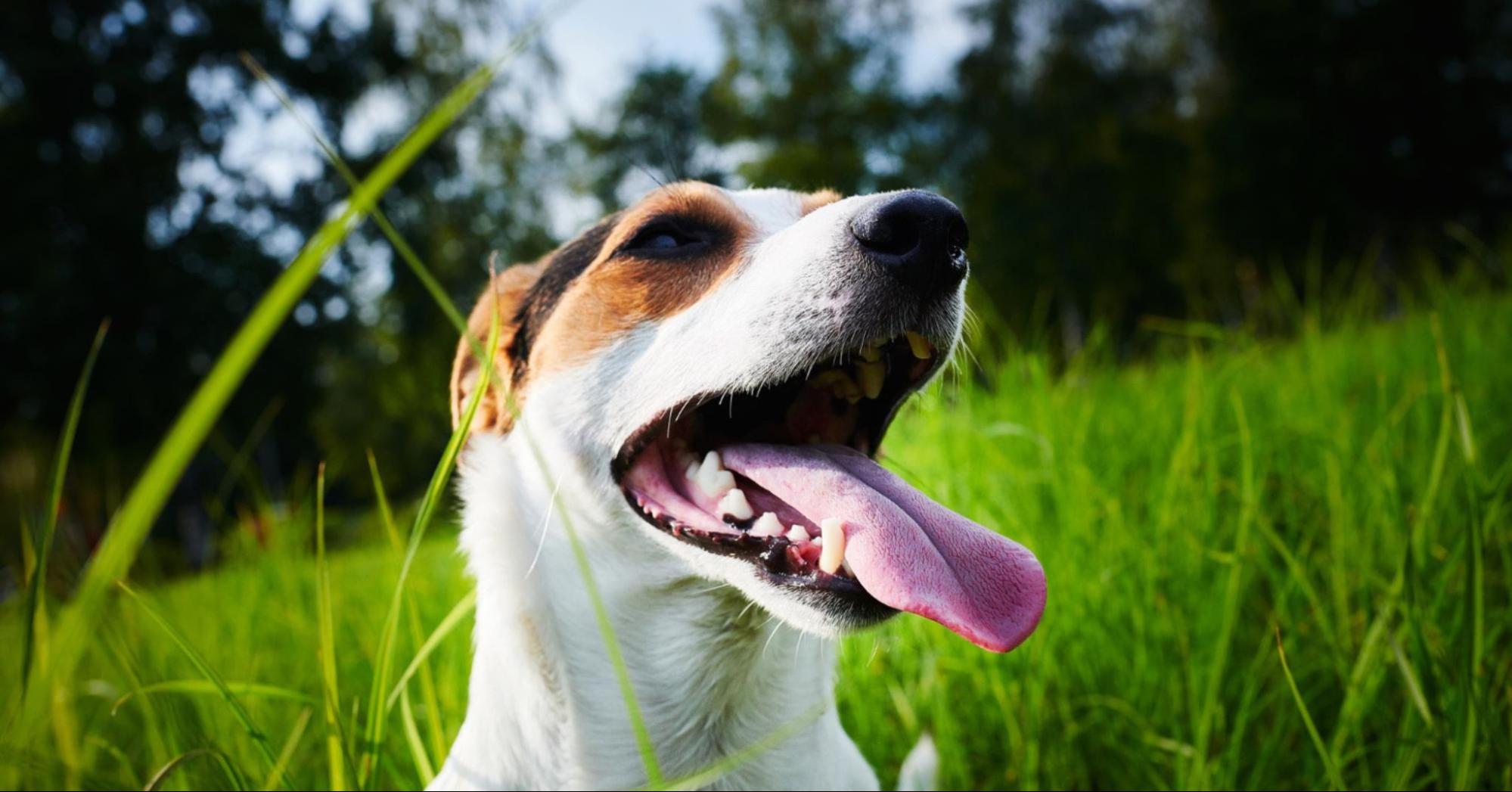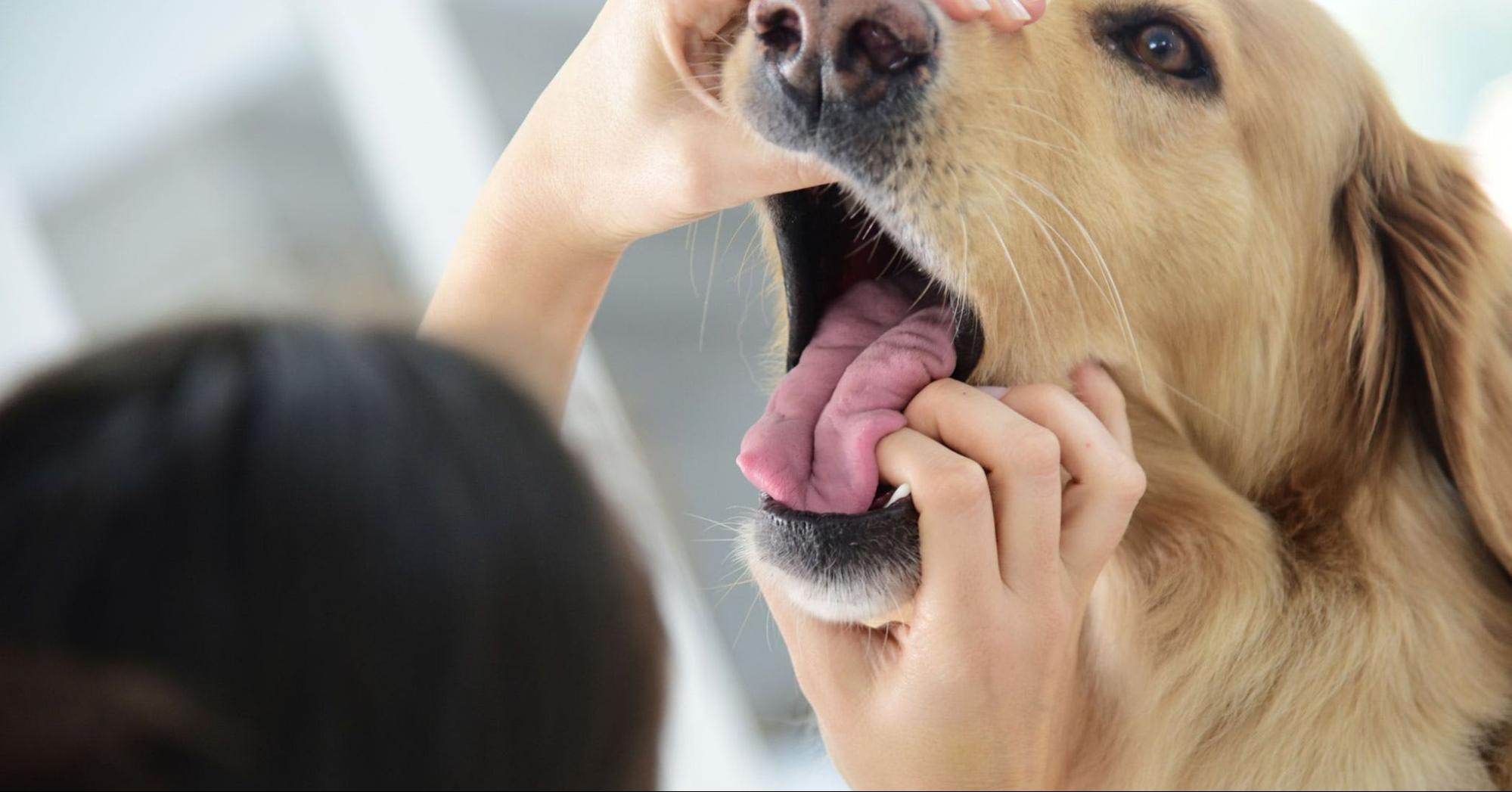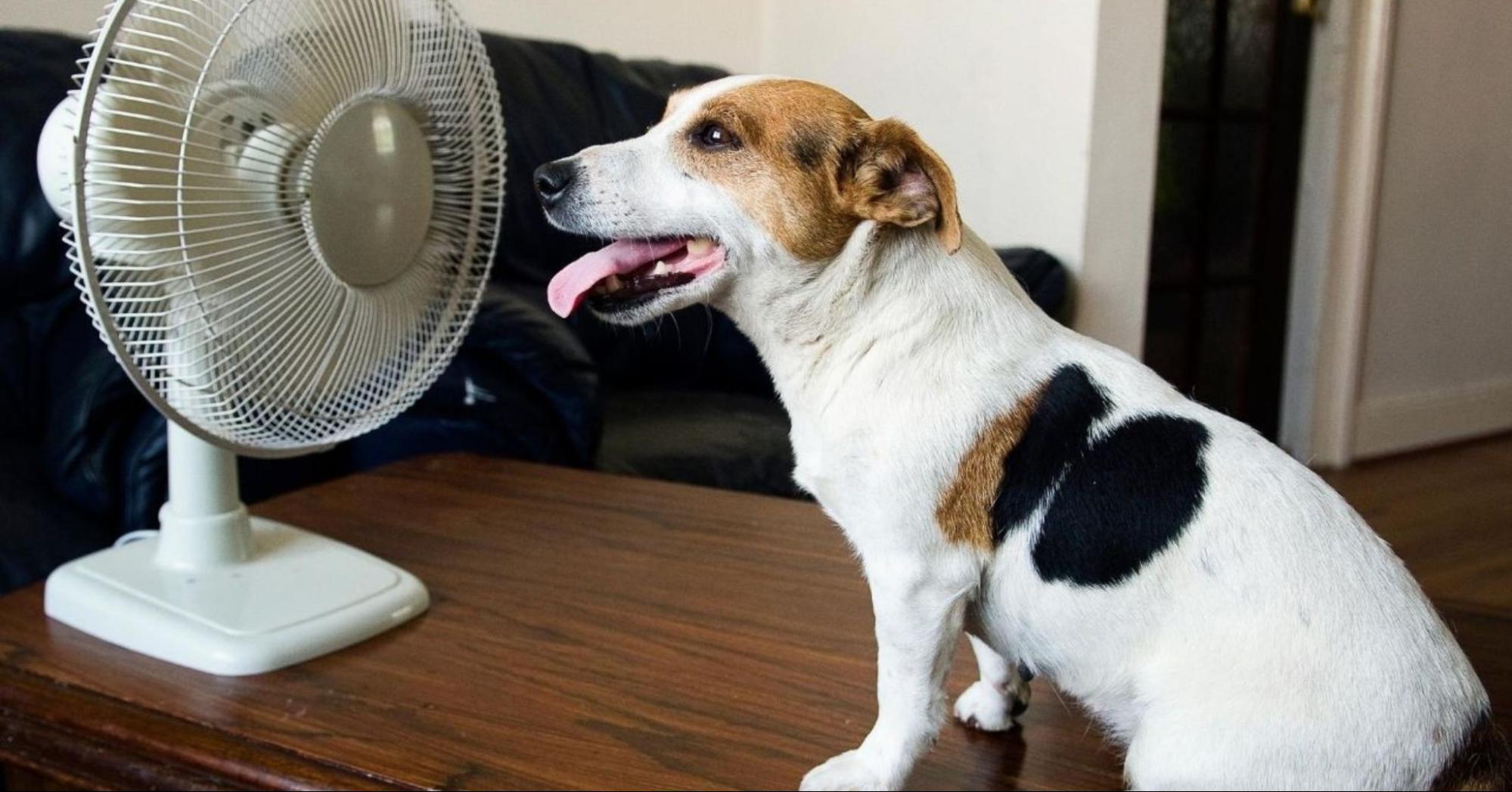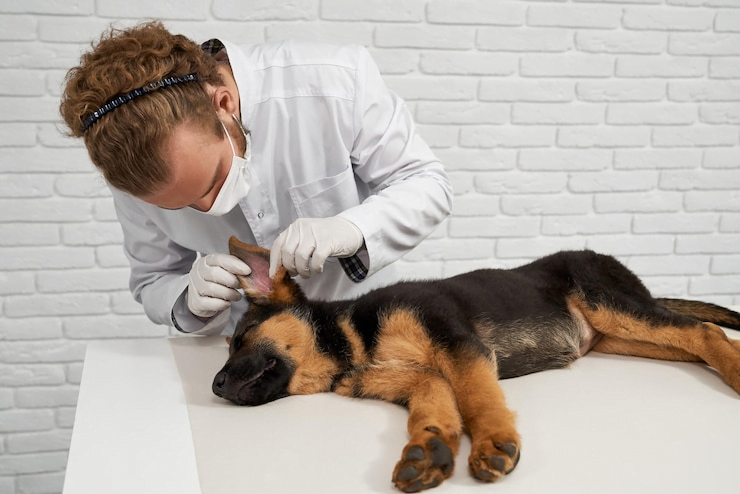Heavy panting, especially when your dog is at rest, is not normal and can be a sign of an underlying issue. While dogs pant to regulate body temperature after exercise or feeling hot, rapid breathing (tachypnea) can indicate respiratory distress. This distress can be caused by respiratory infections, lung diseases, or even heart problems like congestive heart failure.
Other signs to look for include labored breathing, open-mouthed breathing, or noisy breathing. If your dog is experiencing heavy panting along with any of these signs, it’s crucial to seek veterinary care immediately. Early diagnosis and treatment can significantly improve your dog’s health and get them back on the road to recovery.
If your dog exhibits heavy panting, along with signs like open-mouthed breathing, noisy breathing, or unusual breathing sounds, don’t hesitate! Seek immediate veterinary care. Early diagnosis and treatment can improve your dog’s health and get them back on the path to recovery.
Why Is My Dog Breathing Heavy?
Here’s a concise paragraph about why your dog might be breathing heavily:
Heavy breathing in dogs can be a cause for concern. While some instances, like post-exercise panting, are normal, persistent heavy breathing may indicate underlying health issues. Here are some potential reasons:
- Acid-Based Disorders: Disruptions in a dog’s pH balance can lead to respiratory distress. Metabolic acidosis, where the body produces excess acid, is one such disorder. Consult a vet if you suspect this issue.
- Age: Older dogs may find it harder to absorb oxygen, leading to heavier breathing even during light activity.
- Anemia: Reduced red blood cells mean less oxygen transport, forcing the lungs to work harder. Pale gums are a sign of anemia.
- Anxiety and Stress: Dogs experience psychological factors like humans. Anxiety triggers cortisol and adrenaline, causing rapid breathing.
- Underlying Conditions: Heart failure, lung diseases, or infections can all contribute to heavy breathing. If your dog shows signs of distress, seek veterinary advice promptly
What Causes Heavy Breathing In Dogs?
Heavy breathing in dogs can stem from various factors related to the respiratory tract, including respiratory infections, lung diseases, or even lung tumors. Congestive heart failure or underlying heart conditions can also contribute to heavy panting and respiratory distress.
Additionally, signs of anxiety or pain may manifest as irregular breathing patterns or rapid breathing. It’s crucial to seek medical advice if you notice any signs of distress, uncharacteristic drooling, or noisy breathing, as these could indicate a medical emergency.
Diagnostic tests such as chest X-rays and blood tests can help identify the underlying issue, guiding appropriate treatment such as oxygen therapy or pain relief. Understanding the cause of heavy breathing is essential for ensuring your dog’s well-being and guiding them on the road to healing.
When To Be Concerned About Your Dog’s Heavy Breathing
Certainly! Here’s a concise paragraph about when to be concerned about your dog’s heavy breathing: When To Be Concerned About Your Dog’s Heavy Breathing Dogs naturally breathe heavier after exercise or play, but persistent heavy breathing could signal underlying health issues. Pay attention to your dog’s normal respiratory rate—typically 15-30 breaths per minute—and watch for signs of distress.
If your dog breathes heavily at rest, displays pale or blue gums, coughs, or seems in distress, consult a veterinarian. Common causes include infections, allergies, and heart conditions. Remember, stertor (backward snorting) may also indicate upper respiratory tract issues. Regular checkups help identify any underlying conditions that may cause heavy breathing.
How Does Panting Work to Cool Your Dog?
Unlike sweaty humans, dogs cool down through a clever trick – panting! Here’s the science behind it:
- Rapid Inhalation: Dogs take in cool air quickly with each pant.
- Moisture Magic: As they exhale, air comes out through their tongue and airways, which are covered in moisture.
- Evaporation = Cooling: This moisture acts like sweat. As it evaporates from the tongue and airways, it absorbs heat from your dog’s body, creating a cooling effect.
- Faster Breathing, More Cooling: The faster your dog pants, the more air moves through their system. This increases evaporation and heat loss, making them cooler.
So, next time you see your dog panting after a walk on a hot day, you can appreciate this natural air conditioning system keeping them comfortable! However, remember that excessive panting can indicate an underlying issue. If your dog’s panting seems heavy or labored, consult a veterinarian to be safe.
Why is My Dog Panting so Heavily?
Why is My Dog Panting so Heavily? Heavy panting in dogs can be a cause for concern. While some panting is normal, excessive or uncharacteristic panting may indicate an underlying issue. Here are some potential reasons:

- Heat Regulation: Dogs primarily use panting to regulate their body temperature. Unlike humans, they don’t have sweat glands, so panting helps dissipate heat. On hot days or after exercise, panting is normal.
- Respiratory Distress: Heavy panting could signal respiratory distress. Issues in the respiratory tract, such as infections, lung diseases, or tumors, may lead to rapid breathing.
- Pain or Anxiety: Dogs in pain or experiencing anxiety may pant excessively. If you notice signs of pain (e.g., limping, reluctance to move) or anxiety (restlessness, trembling), seek medical advice.
- Underlying Medical Conditions: Conditions like congestive heart failure, lung diseases, or anemia can cause heavy panting. Diagnostic tests, including blood work and X-rays, help identify underlying issues.
- Emergency Situations: If your dog suddenly starts heavy panting, it could be a medical emergency. Seek immediate veterinary attention.
- Medication Effects: Some medications may cause panting. Consult your vet if you suspect this.
Remember, any unusual breathing sounds, labored breathing, or signs of distress warrant prompt attention. Be observant, and consult your vet to ensure your furry friend is on the road to healing! For more information, consult your veterinarian and consider the specific context of your dog’s health.
How Can I Tell Why My Dog is Panting?
Here’s a concise paragraph about why dogs pant and some potential causes:
Panting is a normal behavior in dogs, especially when they’re hot, excited, or exercising. However, excessive or abnormal panting can signal an underlying issue. Here are some common reasons why your dog might be panting:
- Heat: Dogs don’t sweat like humans; they regulate their body temperature through panting. Heatstroke can be life-threatening, so seek veterinary help if your dog shows signs of overheating.
- Pain: Dogs may pant due to pain or discomfort. Conditions like arthritis or abdominal pain can cause subtle signs. Consult your vet for advice.
- Stress/Excitement: Anxiety, fear of fireworks, or car rides can trigger extreme panting. Behavioral training and calming pheromones may help.
- Medication: Some drugs can increase panting, even when the dog isn’t hot.
- Respiratory Issues: Lung diseases, respiratory infections, or lung tumors can lead to heavy panting.
- Heart Conditions: Congestive heart failure or heart disease can cause labored breathing.
- Other Factors: Anemia, underlying conditions, medication side effects, and more can contribute to unusual breathing patterns.
Remember, if your dog’s panting seems excessive or is accompanied by other symptoms, consult your veterinarian promptly. It’s essential to identify the underlying cause and ensure your furry friend’s well-being.
What to Do If Your Dog is Breathing Fast
If your dog is breathing fast, it’s essential to take prompt action. Start by assessing their respiratory rate, body temperature, and signs of distress. If your dog is experiencing rapid breathing along with other concerning symptoms like noisy breathing or irregular breathing patterns, it could indicate a medical emergency.
Immediately seek veterinary advice for a thorough examination and diagnostic tests to identify the underlying cause, whether it’s respiratory infections, lung diseases, or heart conditions. Depending on the diagnosis, treatment options may include oxygen therapy, intravenous fluids, or pain relief. Monitoring your dog’s breathing pattern over time and following medical advice can help navigate their road to healing. Remember, rapid breathing in dogs can signify a range of conditions, so timely intervention is crucial for ensuring your dog’s well-being.
How Vets Diagnose Heavy Breathing in Dogs
While you might worry about heavy panting, a vet can help identify the cause. Here’s what to expect:
- Physical Exam: The vet will listen to your dog’s lungs and heart for abnormalities that might explain the labored breathing.
- Medical History Check: They’ll ask about recent activities, illnesses, or anything out of the ordinary that could be a clue.
- Diagnostic Tests (if needed): Depending on the exam, X-rays or blood tests might be needed. X-rays can reveal lung issues, while bloodwork can check for infections or underlying conditions.
By putting the pieces together – exam findings, history, and test results – the vet can diagnose the cause of the heavy panting. This could be anything from respiratory infections or lung diseases to even heart problems. Once they know the culprit, they can recommend the most effective treatment plan. This might involve medication, oxygen therapy, or even surgery depending on the condition.
Remember, early diagnosis is key! The sooner the vet identifies the cause, the sooner your furry friend can get the treatment they need and be back to their playful self.
Why is My Dog Breathing Fast?
Rapid breathing in dogs can be a concerning symptom that warrants immediate attention. It may indicate various underlying issues such as respiratory infections, lung diseases, or even congestive heart failure. Other potential causes include pain, anxiety, or side effects from medication.
Observing your dog’s breathing pattern, along with any other accompanying symptoms like heavy panting or signs of distress, can help determine the severity of the situation. Seeking prompt veterinary advice is crucial for a proper diagnosis through diagnostic tests and a thorough examination.
Depending on the underlying condition, treatment options may include oxygen therapy, pain relief, or intravenous fluids. Understanding the cause of your dog’s rapid breathing is essential for guiding their road to healing and ensuring their overall well-being.
Conclusion
In conclusion, rapid breathing in dogs can be a significant indicator of underlying health issues that require attention. Whether it’s respiratory infections, lung diseases, or heart conditions, prompt veterinary care is essential for proper diagnosis and treatment. Monitoring your dog’s breathing pattern, along with other symptoms like heavy panting or signs of distress, can help determine the severity of the situation.
Seeking timely medical advice and diagnostic tests is crucial for identifying the root cause and initiating appropriate interventions such as oxygen therapy or pain relief. Understanding why your dog is breathing fast is pivotal in ensuring their well-being and guiding them on the path to recovery. Always prioritize your dog’s health and seek professional guidance for any concerning symptoms or changes in behavior.













